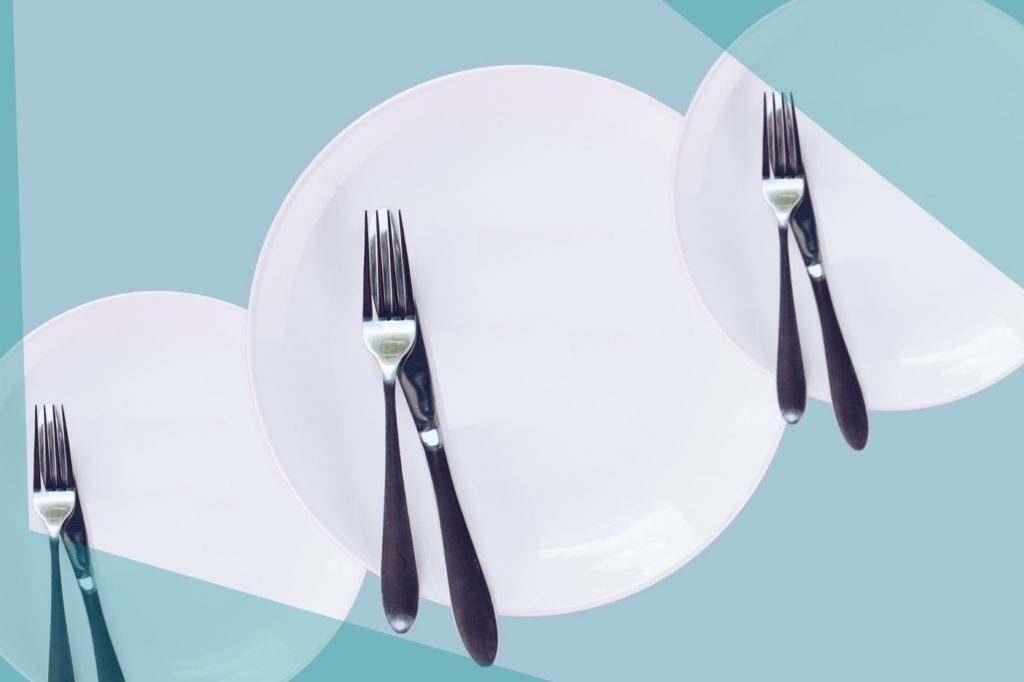How we talk about food and our bodies can negatively impact others.
By Andrea Tinning

According to research, at least one person dies every 62 minutes as a direct result of having an eating disorder. And they don’t discriminate based on gender, age, ethnicity or background; more than 30 million Americans suffer from some sort of eating disorder. More than 70 percent who suffer never seek treatment, often because of shame or societal stigma, which contribute to eating disorders having the highest mortality rate of any mental illness.
While we often associate eating disorders with an individual’s lack of self-control with food or one’s worries about “getting fat,” they are far from that simple. And in some cases, we may be unintentionally contributing to a friend’s or family member’s eating-disorder struggles.
Normally, we may not think twice about the language we use to talk about food (“Let’s be bad and order fries!”), but what many of us don’t realize is it may negatively affect the way loved ones view food and themselves. This may be particularly true in cases in which a friend already has body-image issues. Such talk could be detrimental to his or her selfesteem and in some cases, even push someone toward an eating disorder.
This was the case for engineer, YouTuber and personal-branding-video producerc Pavi Siva Dinamani. Also the founder of MisFit Communications, a video-production company that encourages people to embrace what makes them vulnerable, Dinamani grew up in Dubai, United Arab Emirates. And as an engineering student at Texas A&M University, she, like many other college-aged women, became self-conscious about her body image. When an acquaintance made an offhanded comment about her weight, it sent her into a downward spiral that transformed into a full-blown eating disorder.
“At the time, I was affected because I didn’t have my own identity and I felt compelled to listen to what [his evaluation]of me was,” Dinamani says. “Saying, ‘I don’t give a s–t about what you said,’ I don’t think that’s real. You do give a s–t about what people say.”
Allison Chase, a certified eating-disorder specialist at the Eating Recovery Center in Austin, has more than 20 years of experience helping people overcome their eating disorders. She says the way people talk about food often correlates to the way they see themselves, and that categorizing foods as “good” or “bad” can set people up for negative feelings about themselves.
“It then leads us to categorize a lot of things, including our bodies, that way,” Chase says. “If we can just talk about foods in a different way, reflecting on their taste or if you’re enjoying it, or…stop a lot of the food conversation and be engaging about something else, that makes it even better.”
According to research, at least one person dies every 62 minutes as a direct result of having an eating disorder.
Likewise, the way we speak about our friends’ bodies, though often well-intentioned, is not always helpful in building their self-esteem. Sarah Johannesen, founder of the body-positive brand Living Like Golden and its associated blog, is a junior at the University of Texas. Before moving to Austin, she attended school in Los Angeles and hoped to become an actress when she suddenly developed anorexic tendencies.
“The hard thing is that I noticed [it]was during that time I received so [many]compliments and so much praise,” she says. “People would say, ‘Wow, you’re so fit. You’re so healthy. You inspire me.’ So, I was like, ‘Cool, I’m going to keep doing this.’ ”
A better way to encourage friends’ traits, Chase and Johannesen recommend, is to compliment them on something other than their bodies, like their character or personality.
“Even if I admire something about [their body], I don’t want to be like, ‘Wow, your thighs are great. Wow, you’re this or that,’ because our bodies are always changing, and I don’t want anyone to ever think that’s [only]what I think of them,” Johannesen says.
Dinamani’s friends and family also noticed her weight loss. Coming from a family of problem-solvers, it wasn’t easy for her to open up or for them to dissect the emotional roots of her behavior.
“Just tuning in to emotions and listening rather than just trying to help solve: I wish my family and my friends had done that more,” Dinamani says, “but I also never, never discount what they did because they did what they knew.”
Chase notes this type of reaction is common for people who notice loved ones may be suffering from an eating disorder. The most important way to offer help is to direct that person to professionals.
“[Friends and family are] not trained professionals, so it’s not one’s job to try to therapize [those with eating disorders]or try to get them out of their eating disorder,” Chase says. “Where they can be the best support and the best thing they can do for them is guide them to get some treatment and help.”
Ultimately, the language we use to speak about food and other people’s bodies can be critical in building—or breaking down—self-esteem. When considering commenting about food or someone’s physical attributes, Dinamani says it’s important to think before you speak. The bottom line: Be aware and be considerate.
How to Start the Convo
If you or someone you care about is suffering from an eating disorder—which can include anorexia nervosa, avoidant/restrictive food-intake disorder, binge-eating disorder, bulimia, compulsive overeating and diabulimia—it is important to take action.
• Get educated and know the signs. Visit eatingrecoverycenter.com to learn about specific indicators.
• Speak honestly about the problem. Consider involving family members in the conversation, as educated loved ones can better support recovery success.
• Remember eating disorders, at their core, are not about food.
• Be patient.
• Seek help. Join a support group or consider seeking more comprehensive professional treatment. Overcoming an eating disorder usually requires help from trained recovery specialists.


